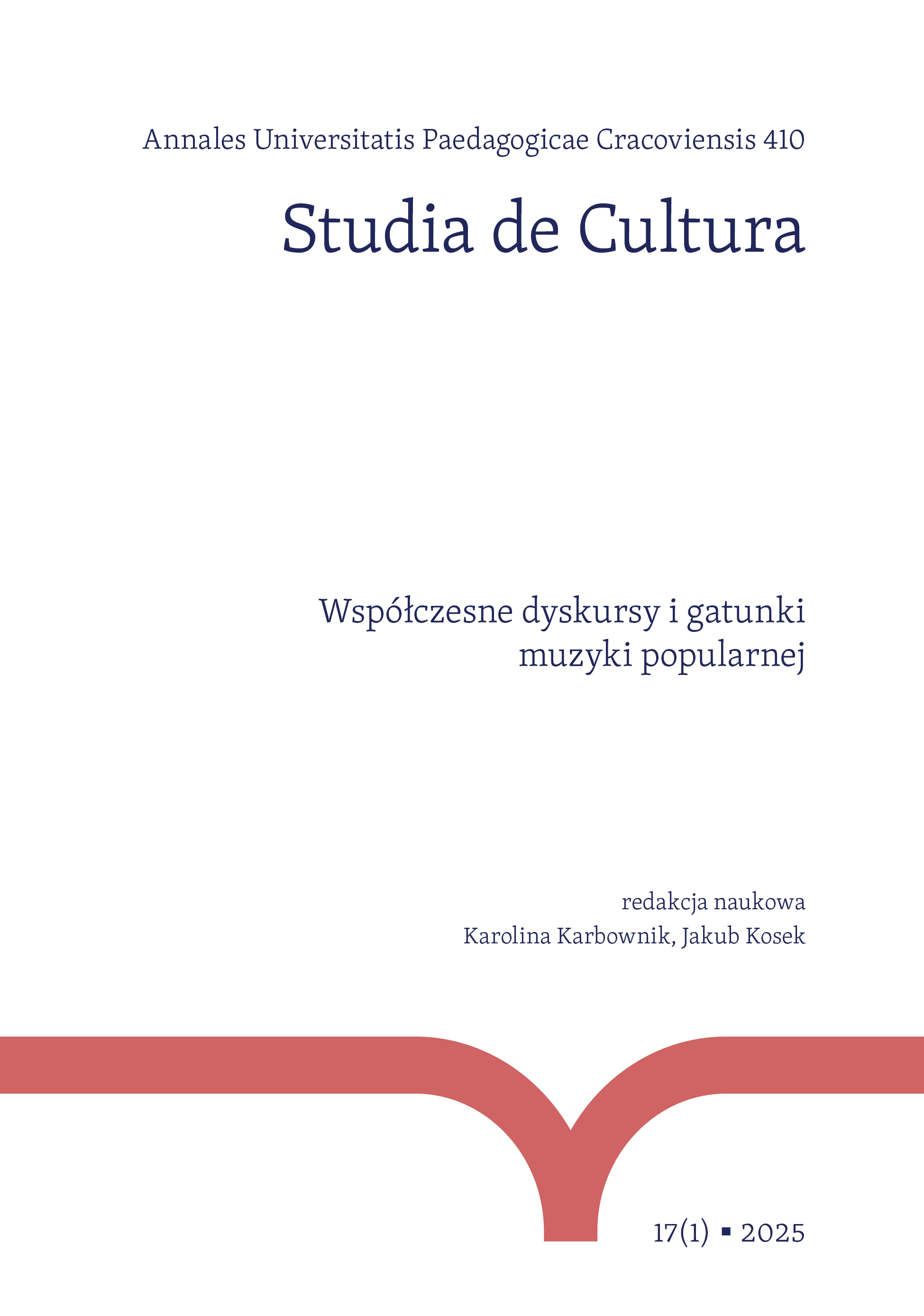Abstract
The article consists of two closely related parts. In the first part, the author formulates the basic theoretical assumptions that form the framework for the cultural analysis of a selected multimodal text – namely, the videoclip of the Russian artistic group Shortparis – conducted in the second part of the article. Referring to selected approaches to emotions which emphasize their relational nature, the author assumes that emotions are extended and embodied; that the object of emotion is culturally constructed (Loman); and that it circulates (Ahmed). The main aim of the article is to reconstruct the cultural meanings and emotions encoded and embodied in the analyzed videoclip. The Russian socio-cultural and political contexts remain crucial, as they allow the recipient to understand the cultural construction of the object of emotion – in this case, fear. This object proves to be ambiguous, transitory, and subject to constant circulation, leading to disorientation and a sense of perpetual threat. The object can be anyone, anywhere, which constitutes an “ontology of insecurity.”
References
Ahmed Sara. 2014. The Cultural Politics of Emotion. Edinburg.
View in Google Scholar
Bierdiajew Mikołaj. 1999. Rosyjska idea. J. C. – S. W. (przeł.). Warszawa.
View in Google Scholar
Bierdiajew Nikolai. 2004. Dusza Rossii. W: Russkaja Idea. Sbornik proizwiedienij russkich mysliteliej. Evgienij Wasiljew (red.). Moskwa. 289–317.
View in Google Scholar
Colombetti Giovanna. 2014. The Feeling Body. Cambridge–London.
View in Google Scholar
Dostojewski Fiodor M. 1992. Zbrodnia i kara. Czesław Jastrzębiec‑Kozłowski (przeł.). Londyn.
View in Google Scholar
Dziadek Adam. 2014. Projekt krytyki somatycznej. Warszawa.
View in Google Scholar
Finol José H. 2014. “On the Corposphere”. Chinese Semiotic Studies vol. 10 is. 3.
View in Google Scholar
Jewdokimow Dorota. 2006. Zagadka „duszy rosyjskiej”. Próba analizy zjawiska. W: Fenomen duchowości. Anna Grzegorczyk, Jacek Sójka, Rafał Koschany (red.). Poznań. 157–170.
View in Google Scholar
Kantorowicz Ernst H. 2008. „Misteria państwa. Pewien koncept absolutystyczny i jego późnośredniowieczne korzenie, przeł. Robert Pawlik”. Kronos nr 8. 23–41.
View in Google Scholar
Kolmogova AnastasiaV. 2015. “Frame Modeling of Social Emotion of Pride in the Context of Distributed Cognition Theory”. Procedia – Social and Behavior Sciences vol. 200. 267–272.
View in Google Scholar
Lotman Yurij. 1998. „Okhota za ved’mami. Semiotika strakha”. Sign Systems Studies vol. 26. 61–82.
View in Google Scholar
Łotman Jurij. 2017. O semiosferze. W: idem. Historia, kultura, literatura. Bogusław Żyłko (przeł.). Gdańsk. 93–113.
View in Google Scholar
Łotman Jurij. 2018. Nieprzewidywalne mechanizmy kultury. Bogusław Żyłko (przeł.). Poznań.
View in Google Scholar
Musolff Andreas. 2021. National Conceptualisations of the Body Politic: Cultural Experience and Political Imagination. Singapore.
View in Google Scholar
Myrdzik Barbara. 2017. „O niektórych konsekwencjach zwrotu afektywnego w badaniach kulturowych”. Annales. Universitatis Mariae Curie‑Skłodowska. Lublin – Polonia. Sectio N vol. 2, s. 115–128.
View in Google Scholar
Ross Gillian. 2010. Interpretacja materiałów wizualnych. Krytyczna metodologia badań nad wizualnością. Ewa Klekot (przeł.). Warszawa.
View in Google Scholar
Shusterman Richard. 2007. O sztuce i życiu. Od poetyki hip‑hopu do filozofii somatycznej. Wojciech Małecki (oprac. i przeł.).Wrocław.
View in Google Scholar
Wachowski Witold. 2021. „Ekologia poznawcza jako tradycja badawcza”. Argument. Biannual Philosophical Journal vol. 11 nr 1. 33–53.
View in Google Scholar
«Все хотят свободной дискуссии». SHORTPARIS в Онеге: необыкновенный концерт у Полярного круга, https://www.youtube.com/watch?v=D99QwhO0zSU&t=1s (dostęp: 22.01.2025).
View in Google Scholar
https://genius.com/Grazhdanskaya‑oborona‑we‑are‑ice‑lyrics (dostęp: 18.01.2025).
View in Google Scholar
«Медуза» публикует новый список «запрещенных российских музыкантов», https://meduza.io/feature/2024/02/08/meduza‑publikuet‑novyy‑spisok‑zapreschennyh‑rossiyskih‑muzykantov (dostęp: 18.01.2025).
View in Google Scholar
Овчинников Н., «Страшно» – это саундтрек жизни в России 2019 года»: интервью с группой Shortparis, https://daily.afisha.ru/music/11980-strashno‑eto‑saundtrek‑zhizni‑v‑rossii-2019-goda‑intervyu‑s‑gruppoy‑shortparis/ (dostęp: 22.01.2025).
View in Google Scholar
SHORTPARIS в Бертгольд Центре, https://www.youtube.com/watch?v=X782DLFDjZs (dostęp: 06.01.2025).
View in Google Scholar
SHORTPARIS: страх, ненависть и тело России #ещенепознер, https://www.youtube.com/watch?v=EOaOicuTwjU&t=614s (dostęp: 14.01.2025).
View in Google Scholar

This work is licensed under a Creative Commons Attribution-NonCommercial 4.0 International License.
Copyright (c) 2025 Annales Universitatis Paedagogicae Cracoviensis. Studia de Cultura

